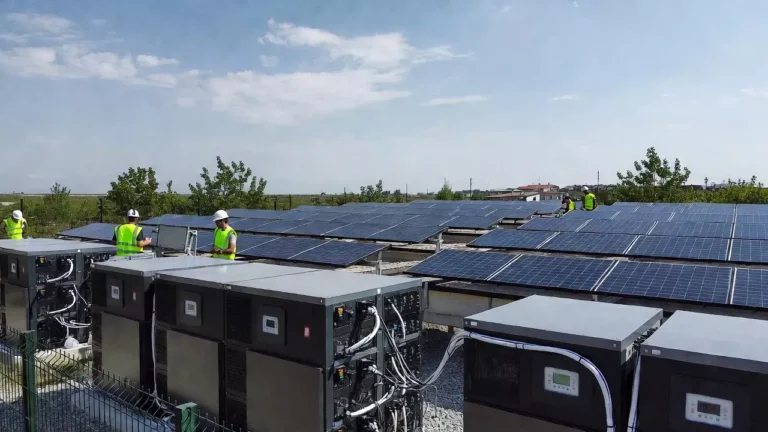
Iberdrola to Divest Mexican Energy Assets in $4.2 Billion Deal to Bolster Global Grid Investment Strategy
Iberdrola, one of the world’s leading energy groups, has agreed to sell a significant portion of its energy generation and commercial activities in Mexico for a total consideration of $4.2 billion. This strategic divestment forms part of the company’s long-term plan to intensify investments in transmission and distribution infrastructure across its global footprint, particularly in key subsidiaries located in the United States, the United Kingdom, Brazil, and Spain.
Strategic Reallocation of Capital Toward Network Investments
The transaction directly supports Iberdrola’s vision to reinforce its role as a global utility leader by focusing capital toward regulated and stable-return investments in grid modernization and network expansion. Specifically, the company has set an ambitious target of investing €55 billion in organic growth across its transmission and distribution networks, operated by its regional subsidiaries—Avangrid Networks (U.S.), ScottishPower Energy Networks (U.K.), Neoenergia (Brazil), and i-DE (Spain). This capital deployment is expected to nearly double Iberdrola’s regulated asset base, increasing it from current levels to approximately €90 billion in the coming years.
This approach aligns with the broader energy transition goals of decarbonization, electrification, and grid resiliency. As renewables and distributed energy resources become more prevalent, robust and flexible electricity grids are increasingly essential. Iberdrola is positioning itself at the forefront of this transformation by prioritizing investments that ensure long-term sustainability, predictability of returns, and technological advancement in energy infrastructure.
Major Recent Network Acquisition Highlights Grid Focus
As a testament to this strategy already in motion, Iberdrola’s U.K. subsidiary, ScottishPower, completed the acquisition of Electricity North West (ENW) in 2023 for approximately €5 billion. ENW operates the electricity distribution network serving around five million people across northwest England, including major urban centers such as Manchester and Preston.
This acquisition significantly expanded Iberdrola’s network asset base in the U.K. and added to its operational synergies and scale in the British market. It also reinforced the company’s focus on regulated businesses and deepened its commitment to supporting the U.K.’s net-zero goals by enhancing the electricity grid’s capacity and resilience.
Financial Position Strengthened to Support Investment Plan
In addition to the asset sale in Mexico, Iberdrola has recently executed a capital increase, raised through the issuance of new shares, which has further strengthened its financial foundation. This move, combined with the company’s solid operating cash flow and ample liquidity reserves, provides the necessary financial headroom to fund its projected €55 billion investment program in transmission and distribution networks without compromising its credit profile.
By fortifying its balance sheet and strategically reallocating capital from non-core or mature assets to grid infrastructure, Iberdrola aims to maximize shareholder value while supporting energy transition policies in its key markets. The company’s financing strategy remains prudent, ensuring it maintains strong investment-grade credit ratings and operational flexibility to navigate market volatility.
Breakdown of the Mexican Asset Sale
The $4.2 billion divestment includes a diversified portfolio of operational and developmental energy assets in Mexico. The package comprises a total installed capacity of 2.6 gigawatts (GW), split between conventional and renewable sources. Specifically, the portfolio includes:
- 1,368 MW of combined-cycle and cogeneration facilities, which have traditionally played a critical role in meeting industrial and commercial energy demand in Mexico.
- 1,232 MW of wind and solar photovoltaic assets, representing Iberdrola’s contribution to the development of clean energy capacity in the country.
In addition to the operating assets, the transaction also encompasses Iberdrola’s commercial retail business and a pipeline of advanced-generation projects. These projects are aligned with the Mexican government’s ongoing push to encourage private sector participation in energy development under updated regulatory frameworks. As these new generation assets come online, the purchasing entity has agreed to make additional payments to Iberdrola, on top of the initial $4.2 billion base consideration. These conditional future payments provide Iberdrola with upside exposure linked to the buyer’s successful implementation of the development pipeline.
The agreed valuation of approximately $1.6 million per megawatt of installed capacity reflects a premium for the diversification, operational reliability, and strategic positioning of the assets. The buyer—an entity reportedly aligned with the policy goals of Mexico’s government—plans to integrate these resources into a broader plan for domestic energy self-sufficiency and infrastructure modernization.
Long-Term Vision: Focus on Sustainable, Regulated Growth
This divestiture signals a deliberate pivot in Iberdrola’s operational focus. While the company retains a presence in renewable development and selected partnerships in Latin America, it is increasingly channeling resources toward geographies and business lines that offer regulatory stability, low volatility, and scalable infrastructure opportunities. In doing so, Iberdrola aligns its corporate strategy with global megatrends such as:
- Electrification of energy demand, including transport and heating,
- Digitalization of grid operations, which enhances efficiency and customer responsiveness,
- Decentralization of power generation, necessitating smarter and more robust distribution systems, and
- Decarbonization mandates, which are rapidly shifting capital flows from fossil-based generation to renewable and clean technologies.
The decision to reallocate capital from generation assets in Mexico to transmission and distribution networks in OECD countries also reflects a growing industry trend: major utilities increasingly favor regulated infrastructure with predictable returns over merchant power assets that are subject to greater market risk and policy uncertainty.










